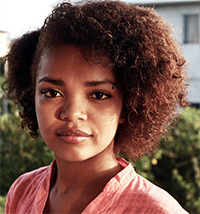I AM a privileged person. My entire life, I have been provided with economic, educational, familial and other forms of social security. Even if I did not want them, they were available should I change my mind. I was not always aware of the ways in which I was privileged and at a certain point, I would have argued that I was not.
You see, when you’re a light-skinned, educated person belonging to a certain race or class, doors will inevitably open for you. Due to the ease with which I could have moved through certain spaces, I assumed the same opportunities afforded me were the same ones afforded everyone else.
Plagued with a violent history of the commoditization of black bodies and the wilful separation and breeding of mistrust between the races by colonisers, the Guyanese experience and its politics have always been firmly rooted in race and oppression. We have sought many ways in which to address our problems with race. The one thing on which we have not put enough emphasis is the discussion of race itself and how social systems are designed to upkeep racial divisions.
Instead, we have sought to popularise the concept of “Colour-Blindness,” which posits that everyone should be treated equally, regardless of their race. It asks you to promote the individual, rather than a social group.
At face value, the ideology of colorblindness seems to be worth its salt even in its idealism. Upon closer inspection however, the arguments for it quickly fall apart. How do we even begin to achieve a “post-racial” society without first dismantling the systems of oppression to which racial minorities are still subjected?
Colour-blindness is a frequently touted half-measure that is largely insufficient to heal racial wounds. It is akin to throwing a wet blanket over racism and pretending that it does not exist. This perspective usually comes from those who lack awareness of their own racial and economic privilege. These are the ones who are usually out of touch with the everyday man. It is an ideology grounded in ignorance.
The truth is, racism has taught us to attribute certain social values to persons based on their physical characteristics. This ideology is one that effectively helps to reinforce the existing systems of inequality, while appearing as if they are dismantling them. Things such as institutional racism and discrimination are disregarded as concepts and replaced by statements of equal opportunity.
Effectively, the privileged touting arguments for colour-blindness continue benefiting from systems of oppression that validate them, yet tout themselves as progressive. We must reject this. We must reject those who tout it — particularly if they refuse to see the limits of their viewpoints.
When marginalised stories are suppressed, it is not the discriminated against who benefit, but rather, those who are already profiting from a system built on the back of racial and ethnic oppression. What this ideology does is allow the privileged to comfortably tell themselves that their successful socio-economic status in relation to minorities is through their individual work, savings and educational attainment.
This removes any suggestion of racial supremacy, while simultaneously legitimising the structures that privilege them. Being blind to dominant social realities is not the same as being fair. Let us take a look at the example of “Lady Justice,” who is often symbolised as being blindfolded. The blindfold is used to symbolise the long-aimed-for impartiality of the justice system that pursues justice regardless of one’s racial, social, and economic and class status. Yet, there are a disproportionate number of poor black people languishing in the prison system while their rich, racially acceptable counterparts are allowed avenues to avoid justice.
The privileged have the benefit of promotion of the individual, because they live in a society that validates them. Racism is a powerful system based upon economic interests, so of course it is easy for the rich to tell you that economic factors and skin colour are not factors in your systematically hindered progression. It is easy for us to quote statistics on the racial economic disparities in education, economics, health and the prison system, but no one ever really wants to talk about the racial experiences that contribute to the statistics.
Racial inequality is upheld in basically every social strata and sphere. From segregation to biased hiring and loan-approval practices, discrimination persists. Colour-blindness does nothing but protect people from ‘having to have difficult conversations about race. If our goal is a future in which the long-strived-for equality is seen, our solutions should not seek to erase powerful social realities that affect our everyday lives.
If you cannot see the privilege intrinsic in colour-blind approaches, it might be time to evaluate the ways in which you are stymying the conversations on race. Let us strive to see the beauty in colour. Let us strive to address the inequalities amongst the coloured. Pretending that it does not exist is not an option — unless of course you are actually colour-blind.




.png)








